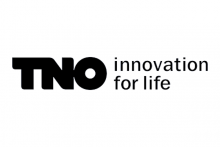
TNO is the Netherlands Organisation for Applied Scientific Research. TNO is the largest fully independent Research, Development and Consultancy organisation in the Netherlands with a staff of about 3,000 and a total annual turnover of more than 500 million Euros. It derives a significant portion of its contract R&D from foreign private sector, governments and international organisations. TNO’s primary tasks are to support and assist trade and industry including SME’s, governments and others in technological innovation and in solving problems by rendering services and transferring knowledge and expertise. TNO participates in many EU programmes aiming at technological development. TNO has conducted co-operation agreements with many foreign research institutes and companies in Western, Central and Eastern Europe, USA, Canada, Japan and India. The expertise group Climate, Air and Sustainability (CAS) is an expert centre and contract research unit for industry and government in the field of sustainable development and environmentally oriented process innovation. The expertise group investigates the processing of anthropogenic pollutants in the atmosphere and their influence on the environment and climate change. TNO has multiple decades of experience in quantifying emissions from various technologies and their characteristics, constructing emission inventories using all this input, and the impacts of legislation on the emission characteristics. TNO also has decades experience in translating emissions into air pollution concentrations at local, national and European scale as well as impact assessments using various modelling tools, including local and regional scale air quality models at European level. TNO has ample experience with the use of observed air pollutant concentrations in ambient air, amongst others in comparison to modelled values.
TNO will co-lead WP 2 Prior and ancillary information as the main provider of regional emissions data including associated uncertainties and it will coordinate the delivery of associated products. Moreover, TNO will work on a global point source database and the development of a fossil fuel emission model (FFDAS).
In WP 4 Local and regional modelling and data assimilation TNO will focus on the national scale using the TNO’s LOTOS-EUROS model and its data assimilation routines to make inversions over North West Europe. Focus will be on CO2 and the co-emitted species CO and NOx, if feasible data on CH4 will also be provided.
In WP 5 Connecting scales and uncertainties TNO’s role is its expertise in preparing bottom-up model-ready emissions data. TNO will incorporate the CIF in its LOTOS-EUROS model and it will for one country compare the use of the regular emission inventory as prior with the use of the emission model developed to determine how sensitive the inversion result is for a priori uncertainty definition.